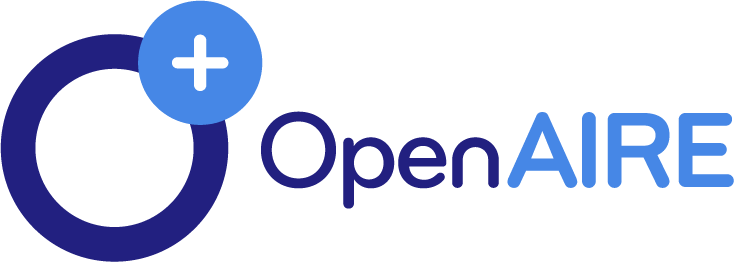САМОСТІЙНЕ НАВЧАННЯ СТУДЕНТІВ У СИСТЕМІ ВИЩОЇ ОСВІТИ
DOI:
https://doi.org/10.28925/2414-0325.2016.2.6775Ключові слова:
персональний освітній простір, вища освіта, ІКТ інструменти, ІКТ-компетенції викладачів та студентівАнотація
У статті досліджено поняття персонального освітнього простору, його природу, функції та застосування у системі сучасної вищої освіти. У теоретичному плані персональне освітнє середовище базується на поняттях саморегульованого навчання, конективізму та конструктивізму. У статті автори торкаються проблеми опозиції між поняттям персональний освітній простір та поняттям система управління навчанням. Цей науковий огляд виконано у відповідності до актуальних завдань Європейського проекту IRNet – “Міжнародна наукова мережа дослідження та розробки нових інструментів та методик передової педагогічної науки у сфері інструментів ІКТ, електронної освіти та міжкультурних компетенцій”. Викладачі мають направляти своїх студентів у процесі їх самостійного навчання.
Завантаження
Посилання
Alkali, Y. E., Amichai-Hamburger, Y. Experiments in Digital Literacy. CyberPsychology & Behavior, 7(4), 2004. P. 421-429.
Dabbagh, N., Kitsantas, A. Personal Learning Environments, social media, and self-regulated learning: A natural formula for connecting formal and informal learning. Internet and Higher Education, 15, 2012. P. 3-8.
Dexler, W. A. Networked Learning Model For Construction of Personal Learning Environments in Seventh Grade Life Science. [online] Available at <http://files.eric.ed.gov/fulltext/ED509294.pdf>, (accessed 1 December 2015).
Dexler, W.A. Personal Learning Environments in K-12 // Handbook of Research on K-12 Online and Blended Learning, Chapter: 4, Publisher: ETC Press, Editors: Richard E. Ferdig, Kathryn Kennedy, 2014. P.447-465.
Dillenbourg, P. What do you mean by collaborative learning? In P. Dillenbourg (Ed.), Collaborative-learning: Cognitive and computational approaches Oxford: Elsevier. 1999. P.1-19.
Downes, S. E-learning 2.0. eLearn Magazine, October 17 [online]. Available at <http://www.downes.ca/post/31741>. (accessed 1 December 2015).
Downes, S. An Introduction to Connective Knowledge. in Hug, Theo (ed.): Media, Knowledge & Education – Exploring new Spaces, Relations and Dynamics in Digital Media Ecologies. Proceedings of the International Conference held on June 25-26, 2007. Nov 27. Type: B - Publications in Refereed Conference Proceedings.
Downes, S. Origins of the Term 'Personal Learning Network'. [online] Available at http://www.halfanhour.blogspot.cz/2009/10/origins-of-term-personal-learning.html, (accessed 1 December 2015).
Jane Hart’s Top 100 Tools for Learning 2015 [online]. Available at <http://c4lpt.co.uk/directory/top-100-tools>
Kostolányová, K. Stimulating personalized learning in electronic environment Conference proceedings of 10th International Scientific Conference on Distance Learning in Applied Informatics DIVAI2014. P.105-117, 2014. ISBN 978-80-7478-479-2.
Morze N. Trends in ICT use in education and the Intel program “Education for the Future”. Proceedings of International Forum “New Horizons of ICT in education, Kyiv 10-11 Decmeber, 2013” [online]. Available at < http://10.iteach.com.ua/journal-page/20> (Accessed 1 December 2015).
Morze, N.V., Kocharyan, A.B. The model of ICT competence standard of university professors in the light of improving the quality of higher education. Information technologies and means of learning , V. 43. №5. P.27-39. 2014. [In Ukrainian]
Mott, J. Envisioning the post-LMS era: the open learning network. Educause Quarterly, 33 (1) [online]. Available at <http://er.educause.edu/articles/2010/3/envisioning-the-postlms-era-the-open-learning-network>. (accessed 1 December 2015).
Noskova, T. and Pavlova, T. Vectors of changes in a teacher on networked learning environment of a university. – Journal «Herald of Moscow State Humanitarian University named after M.A. Sholokhov». Pedagogics and psychology. Issue № 3, 2011. – P.39-49. [In Russian]
Polovin B. Personal learning environment as a basic structural element of modern education. [online] / E data. — Available from : http://essuir.sumdu.edu.ua/bitstream/123456789/33348/1/Polovin_information_society.pdf - dividers. (accessed 1 December 2015) [in Ukrainian]
Rahimi, E., van den Berg, J., Veen, W. A pedagogy-driven framework for integrating Web 2.0 tools into educational practices and building personal learning environments. Journal of Literacy and Technology, 15 (2). Special Edition: Personal Learning Environments: Current Research and Emerging Practice. 2014a. P.54-79.
Rahimi, E., van den Berg, J., Veen, W. A learning model for enhancing the student's control in educational process using Web 2.0 personal learning environments. British Journal of Educational Technology. [online] Available at <http://dx.doi.org/10.1111/bjet.12170>. 2014b. (accessed 1 December 2015).
Secret I.V., Kommers P.A.M. Conceptual issues of the digital competence development in the framework of the council of the European Union. Conference proceedings of 10th International Scientific Conference on Distance Learning in Applied Informatics DIVAI2014. 2014. P. 183-195, ISBN 978-80-7478-479-2.
Siemens, G. Connectivism: A Learning Theory for the Digital Age. [online] Available at <http://www.connectivism.ca>. (Accessed 1 December 2015).
Valtonen, T., Hacklin, S., Dillon, P., Vesisenaho, M., Kukkonen, J., Hietanen, A. Perspectives on personal learning environments held by vocational students. Computers & Education 58 (2012), P. 732–739.
Zimmerman, B.J. Self-regulated learning and academic achievement: an overview. In Educational Psychologist. 25 (1), Lawrence Erlbaum Associates, 1990. P. 3-17.










1.jpg)







